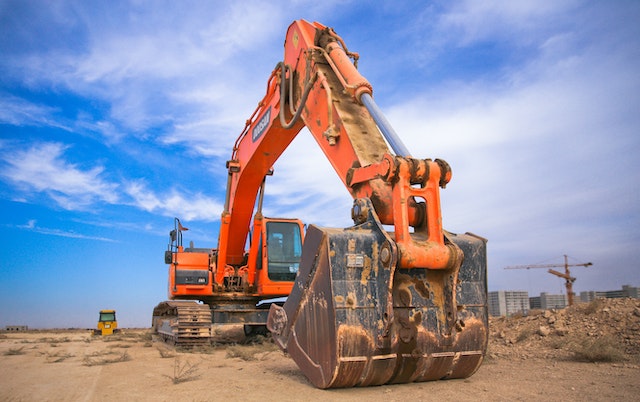Construction and infrastructure development are vital components of any growing economy. Within the construction industry, sub-engineer civil jobs are crucial in overseeing projects and ensuring their completion. This article will explore the various aspects of sub-engineer civil jobs, including their responsibilities, educational requirements, career opportunities, and more.
Thank you for reading this post, don't forget to subscribe!What is a Sub Engineer Civil?
A sub-civil engineer, also known as an assistant or junior engineer, is a professional responsible for assisting senior engineers in constructing, maintaining, and supervising civil engineering projects.
Responsibilities of a Sub Engineer Civil
Sub engineer civils is involved in various responsibilities throughout different stages of a construction project. Their tasks may include:
Assisting in Project Planning
Sub-engineer civils actively participates in the planning phase of construction projects, analyzing project requirements and contributing to developing project timelines and budgets.
Preparing Design and Technical Drawings
They prepare detailed technical drawings based on architectural designs and project requirements, including blueprints and construction plans.
Supervising Construction Activities
Sub-engineer civils monitors and manage construction activities to ensure they are carried out per the approved designs and specifications, maintaining quality standards and adhering to safety regulations.
Conducting Site Inspections
They perform regular inspections to ensure compliance with building codes, safety protocols, and quality control standards. They identify and resolve any issues or discrepancies that may arise during the construction process.
Coordination and Communication
Sub-engineer civils collaborates with architects, contractors, and other stakeholders, providing technical support and maintaining effective communication channels to ensure project progress and resolve potential conflicts.
Managing Project Documentation
They maintain project documentation, including progress reports, material usage records, and inspection reports. This documentation is a reference for future maintenance, repair, and evaluation.

Educational Requirements
To pursue a sub-civil engineer career, a minimum educational qualification of a diploma or degree in civil engineering is required. The curriculum typically includes structural analysis, construction materials, surveying, project management, and building codes.
Skills Required
Apart from the educational qualifications, specific skills are essential for success as a sub engineer civil:
Technical Proficiency
Computer-aided design (CAD) software and other technological tools are crucial for preparing detailed drawings and interpreting architectural plans.
Technical Proficiency
Computer-aided design (CAD) software and other technological tools are crucial for preparing detailed drawings and interpreting architectural plans. A strong understanding of engineering principles, construction techniques, and relevant software applications is necessary for effective project execution.
Analytical Thinking
Civil engineers must analyze complex problems, assess potential risks, and propose practical solutions. They should be able to think critically and make sound judgments to overcome challenges that may arise during construction projects.
Attention to Detail
Precise measurements, accurate calculations, and adherence to specifications are crucial in civil engineering. Sub engineer civils must have an eye for detail to ensure that construction projects meet quality standards and comply with safety regulations.
Communication and Collaboration
Practical communication skills are essential for sub-engineer civils to collaborate with various stakeholders, including architects, contractors, and workers. Clear and concise communication helps convey project requirements, resolve conflicts, and ensure smooth progress.
Problem-Solving Skills
Construction projects often encounter unexpected challenges and obstacles. Sub engineer civils must identify problems, evaluate alternative solutions, and make informed decisions to overcome the barriers and keep the project on track.

Job Opportunities
Sub engineer civils can find job opportunities in various sectors, including:
Construction Companies
Many construction companies hire sub-engineer civils to support ongoing projects. These companies are involved in residential, commercial, and infrastructure development projects.
Government Agencies
Government departments, such as public works and transportation authorities, employ sub engineer civils for infrastructure planning, maintenance, and project execution.
Engineering Consultancies
Engineering consultancies provide specialized services to clients in the construction industry. Sub engineer civils can work as part of a consultancy team, offering expertise in project management, design, and construction supervision.
Real Estate Developers
Real estate developers often require sub-engineer civils to oversee construction projects for residential and commercial properties.
Career Growth
Sub engineer civils has career growth and advancement opportunities in the construction industry. With experience and expertise, they can take on higher-level roles such as:
Senior Engineer
After gaining significant experience, sub-engineer civils can progress to become senior engineers. In this role, they take on more complex projects, lead teams, and make critical decisions regarding project design and execution.
Project Manager
With solid leadership and organizational skills, sub-engineer civils can transition into project management roles.
Specialized Roles
Sub engineer civils can specialize in specific areas of civil engineering, such as structural design, geotechnical engineering, or transportation engineering. Specialization allows for in-depth knowledge and expertise in a particular field.
Salary Expectations
On average, entry-level sub-engineer civils earns around $45,000 to $55,000 annually. Expertise and career progression can increase the salary to $70,000 annually.
Tips for Landing a Sub Engineer Civil Job
To increase your chances of securing a sub-engineer civil job, consider the following tips:
Build a Strong Educational Foundation
Obtain a degree or diploma in civil engineering from a reputable institution. Focus on developing a solid understanding of engineering principles and gaining hands-on experience through internships or practical projects.
Enhance Your Technical Skills
Stay updated with the latest software applications in civil engineering, such as CAD tools and project management software. Continuous learning and skill development will make you more marketable to potential employers.
Gain Practical Experience
Seek opportunities to gain practical experience through internships, co-op programs, or entry-level positions in the construction industry.
Network
Attend industry events, join professional associations, and connect with individuals working in civil engineering. Networking can open doors to job opportunities and help you stay updated with industry trends and advancements.
Create an Impressive Resume and Cover Letter
Emphasize any notable achievements or projects you have been involved in during your academic or professional journey.
Prepare for Interviews
Research common interview questions for sub-engineer civil positions and practice your responses.
Continuing Education
Consider pursuing further education or certifications in specialized areas of civil engineering. This demonstrates your commitment to professional growth and can give you a competitive edge in the job market.

Challenges and Rewards
Like any profession, sub-engineer civil jobs come with their own set of challenges and rewards. Some of the challenges include:
Demanding Work Environment
Construction projects often involve tight deadlines, long hours, and working in various weather conditions. Sub engineer civils needs to be adaptable and resilient in handling these challenges.
Complex Problem-Solving
Construction projects can present complex technical and logistical challenges. Sub engineer civils must apply their expertise to find innovative solutions and ensure project success.
Coordination and Communication
Coordinating with multiple stakeholders and teams requires effective communication and collaboration skills. Clear and concise communication is essential to prevent misunderstandings and delays.
Despite the challenges, sub-engineer civil jobs also offer numerous rewards:
Hands-on Project Involvement
Sub-engineer civils can contribute to tangible construction projects and witness their ideas become a reality.
Career Growth and Advancement
With experience and continuous learning, sub-engineer civils can progress to higher positions, take on more significant responsibilities, and have a fulfilling and rewarding career.
Contribution to Society
Civil engineering projects are crucial in improving infrastructure, enhancing communities, and providing essential services. Sub engineer civils has the satisfaction of making a positive impact on society.
Future Outlook for Sub Engineer Civil Jobs
The future outlook for sub-engineer civil jobs remains promising. The construction industry is expected to experience continued growth, driven by population growth, urbanization, and infrastructure development. The demand for skilled sub-engineer civils will likely remain steady, offering ample job opportunities in the public and private sectors.
Advancements in technology, such as Building Information Modeling (BIM) and sustainability practices, will also shape the future of sub-engineer civil jobs. Sub engineer civils who stay updated with emerging trends and technologies will be well-positioned to excel in their careers.
Conclusion
Sub engineer civil jobs provide an exciting career path for individuals passionate about construction, engineering, and project management. You can build a successful and fulYouand embracing growth opportunities.
FAQs
Q: What is the average salary for overcoming challenges, continuous learning, and embracing growth opportunities for a sub-civil engineer?
The average salary for a sub-civil engineer can vary depending on factors, experience, and the type of projects they work on. However, with additional knowledge and expertise, it is possible to earn a higher salary.
Q: How long does it take to become a sub-civil engineer?
The duration to become a sub-civil engineer depends on the educational path you choose. Typically, it takes around 2 to 4 years to complete a diploma program in civil engineering. Additionally, gaining practical experience through internships or entry-level positions can further enhance your skills and employability.
Q: Are there any certifications or licenses required for this role?
While certifications and licenses may vary depending on the region and specific job requirements, some certificates can enhance your sub-civil engineer credentials.
Q: Can sub-engineer civils work in different industries?
Yes, sub-engineer civils can work in various construction and infrastructure development industries. They can find employment opportunities in construction companies, government agencies, engineering consultancies, and real estate development firms. The skills and knowledge gained as a sub-civil engineer are transferable to different sectors within the construction industry.
Q: What do sub-engineer civils face the everyday challenges?
Sub engineer civils may encounter challenges such as tight project deadlines, managing multiple stakeholders and teams, coordinating with contractors, and addressing unexpected issues during construction projects. They also need to stay updated with evolving regulations and industry standards.
